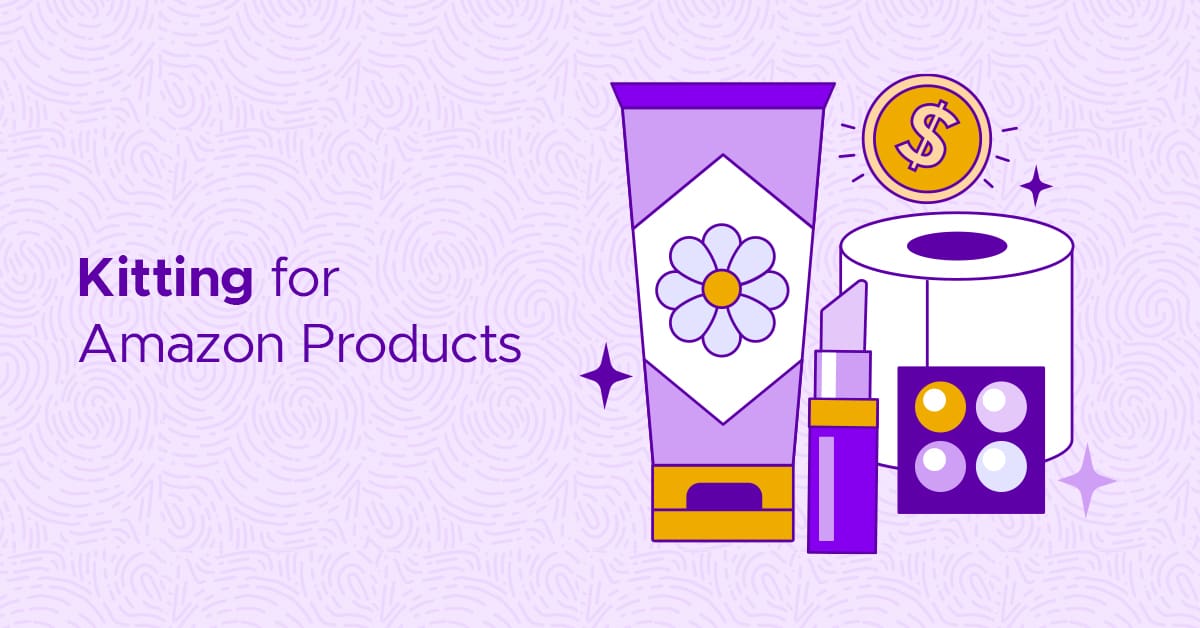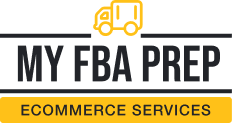
Kitting for Amazon Products

Selling on Amazon pits you against 2.3 million other active sellers to land your offering in front of the platform’s audience. Whether you use your own fulfillment, FBA, or a 3PL, you’ll need to leverage smart merchandising and marketing to make your products visible and dominate your respective categories and SERPs. That’s even more critical when you resell products or distribute manufactured goods since you’ll have to compete for the Featured Offer (formerly the Buy Box) as well.
Bundling and kitting for Amazon products are prime strategies to accomplish this, as they involve combining goods into a single ASIN or SKU. Sets, gift packs, assembled parts, and more are all great ways to get started with bundles and kits on Amazon.
What are bundling and kitting for Amazon products?
Bundling and kitting both entail packaging multiple items together into a package with one ASIN or SKU. The resulting set is typically shrink-wrapped and boxed for merchandising and sale as a single unit. That being said, there are subtle differences between the two:
- In bundling, you can combine a variety of products, related or not, to form a single SKU or ASIN. For instance, you could sell a tester kit with a sample size of everything from your store.
- A kit, meanwhile, is everything a customer needs for a certain activity or product assembly, meaning the components must fit logically. That could take the form of a travel-sized hygiene care kit, for instance.
In short, bundles can be any mash-up of items, but kit components must go together. Kits may also require some assembly, such as putting parts together.
Types of bundles and kits to sell on Amazon
If you utilize kitting for amazon products, you’ll have to gather the necessary components, package them as a single product, and then add labels just like you would for an individual item. The process also requires generating a unique SKU and ASIN or GTIN, removing old labels, and otherwise ensuring your new bundle is a standalone product that’s ready for sale.
Sellers can branch into various kinds of bundles and kitting for amazon products. Before you commit to a new offering though, you should first look at:
- Market differentiation (how you can stand out from your competition)
- Reducing your Featured Offer competition
- Sales incentives (e.g., offering discounts)
With that in mind, we’ve listed some bundle and kitting for amazon products options that could prove lucrative for your Amazon business.
Multi-pack
Assembling multiple items into a single set produces a unique ASIN that faces less competition for the Featured Offer. In addition, you can offer a discount based on your cost savings to incentivize sales. This is a great strategy for household goods, staples, or craft supplies (think two 10-packs with X% discount based on your normal cost per sale, plus the cost of fulfillment and packaging for each order).
Assembled kit
Say you sell a Raspberry Pi as well as all of the accessories and pieces buyers need to complete various projects. You notice about 30% of your sales comprise parts for a Raspberry Pi server. So, after conducting some market research, you decide to sell a pre-assembled kit with everything ready for a plug-and-play Raspberry Pi server. You assign someone to gather and package all the necessary components in your warehouse, then list it on Amazon. Since it’s a pre-assembled item, you can charge a higher price, and the single package also saves on FBA storage, shipping, and marketing costs per sale.
This type of product appeals to customers who are looking for an easy solution instead of having to hunt down all the parts themselves. That convenience is an attractive perk that draws in new customers. Assembled kitting for amazon products don’t fit every niche, but they can be a lucrative option for many industries.
Starter pack
A starter pack targets new customers who need everything at once. If your store’s catalog includes a power drill, a bit set, and a spare battery, you can and should sell these items individually. However, you could also package them together for an “everything you need to get started” offering.
“Commonly Sold Together”
Look at your data to see what commonly sells at the same time. If you notice any trends, you can build packs with those items and offer a discount on them to further incentivize sales. This tactic differentiates your product from competitors who don’t have that bundle while lowering costs for marketing, packaging, and merchandising on the back end.
Why you should adopt bundles and kitting for Amazon products for FBA
Whether you sell exclusively through FBA or also employ Fulfilled by Merchant, bundling and kitting for Amazon products can save you a great deal in several ways.
Cut FBA prep
FBA packaging and labeling is time intensive and has strict regulations. When you combine multiple products though, you reduce the packing materials and labels you use. For example, a three-pack of multi-vitamins requires only one-third of the bagging and labels that selling three bottles separately would. In turn, that’ll reduce FBA prep time and costs.
Reduce storage expenses
FBA charges a cubic foot rate based on product size and weight. It’s a flat $0.78 per cubic foot for most of the year, then increases to $2.40 per cubic foot during Q4. If you shrink-wrap items together and kit them as a single product, you’ll need much less space per item and so save on storage expenses.
Lower fulfillment costs
Amazon charges a fixed fulfillment cost per order. At 2024 rates, you’ll pay $3.60 per item to ship a 16 oz bottle of shampoo — or $6.62 for a three-pack. Further, if you package smaller items, such as a set of thread spools, with a larger product like a sewing machine, you might pay as little as $0.08 for fulfillment for the additional items. That can make selling those small add-ons worthwhile, or at least give you room to offer a larger discount to incentivize a purchase.
Boost shopping cart values
If you can sell a three-pack for $20 or a single unit at $8 and make the same profit per item, your bundle has still successfully raised your shopping cart value. That translates to lower costs and a higher ROI for your marketing and advertising.
Open sales to new markets
Expand to new markets with attractive bundles and kitting for Amazon products that don’t eat into your profit margins. You’ll have to research each market to understand what niches are available and then build bundles and kits to cater to them. Think travelers’ bundles, starter packs, repair and upgrade kits, etc.
Marketing
Bundles and kitting for Amazon products can be a market differentiator on Amazon. For instance, you might not have the Featured Offer placement for a single product, but you could be the only seller with two- and four-packs of the same item at a discount. These offerings can also increase brand visibility across a category and product search, which boosts your marketing efforts.
Best practices for kitting Amazon products
If you decide to kit products for Amazon, you need to hone your process by solidifying product prep, labeling, listing, quality control, and forwarding. To create a well-oiled procedure, check off these boxes:
- Make sure your bundle or kit isn’t already on Amazon before you list it.
- Generate unique SKUs for each bundle and kit variation you have.
- Correctly configure your listing in Amazon. If you opt for virtual bundling, Amazon will grab X number items and put them into a box, even if you’ve already shrink-wrapped those products together.
- Check if your product category requires purchasing and using separate GTIN for each bundle or kit you sell.
- Leverage a 3PL kitting and bundling service to reduce costs and improve product quality. Make sure your provider also offers FBA prep if you ship directly into the program (e.g., label removal, repackaging, and adding barcodes and labels specifically for Amazon).
Wrapping up — Make bundles and kitting for Amazon products your next star offerings
Bundling and kitting for Amazon products can yield a high ROI. These lucrative combinations save on FBA costs and fees, reduce shipping time and pick-and-pack errors, improve shopping cart values, and open opportunities to break into new markets. Review your inventory and sales patterns to pinpoint where this strategy could fit into your offering. With a detailed plan in place, bundles and kits can be an excellent tactic to drive sales and foster business growth.


